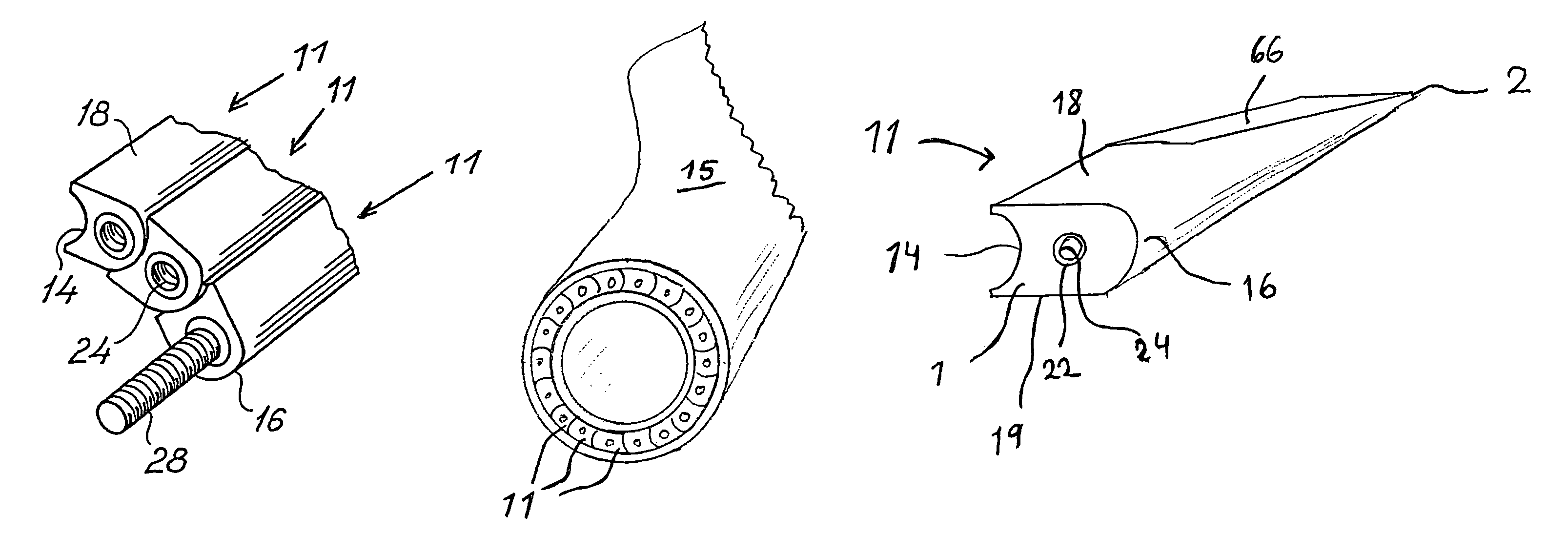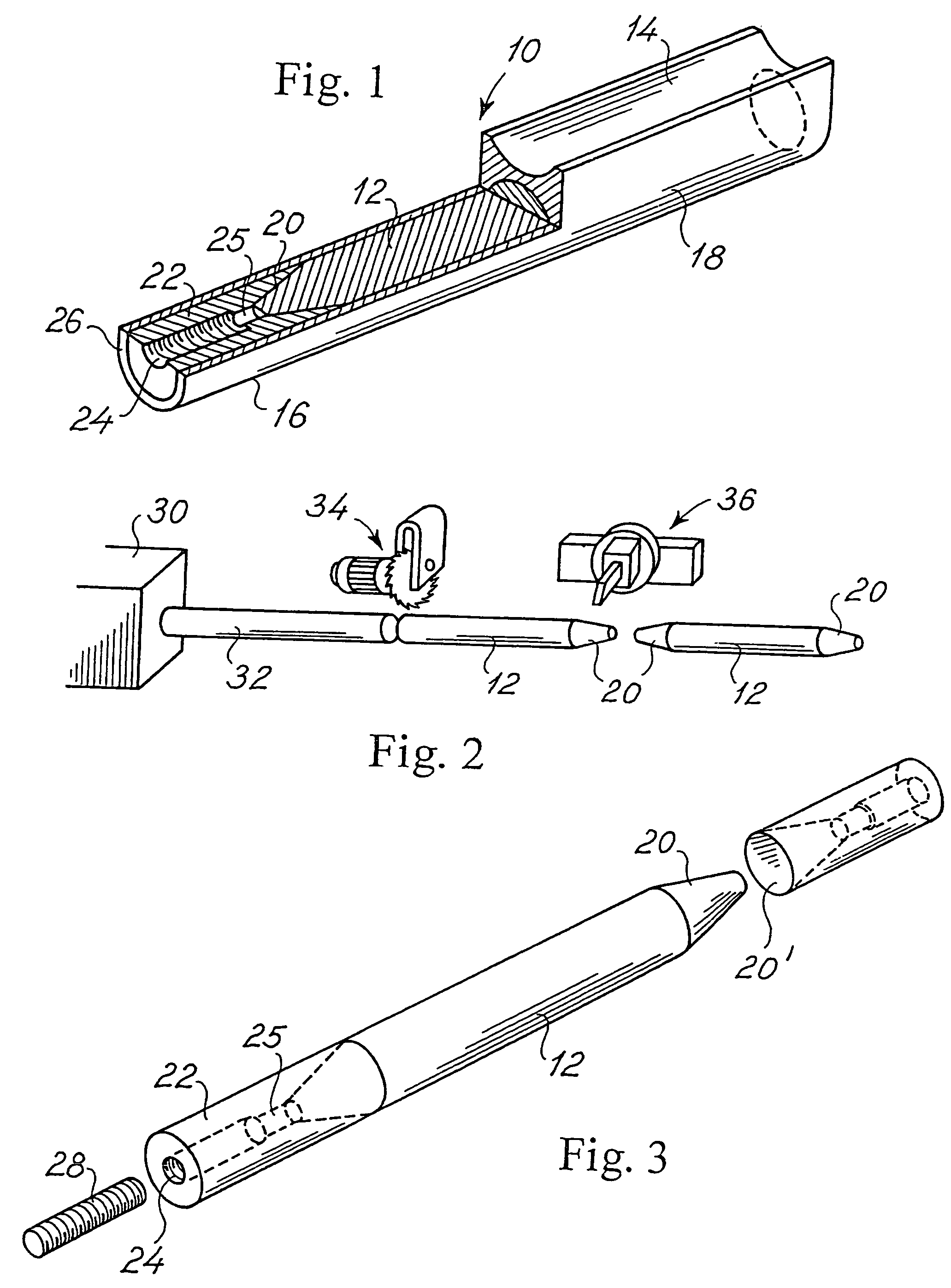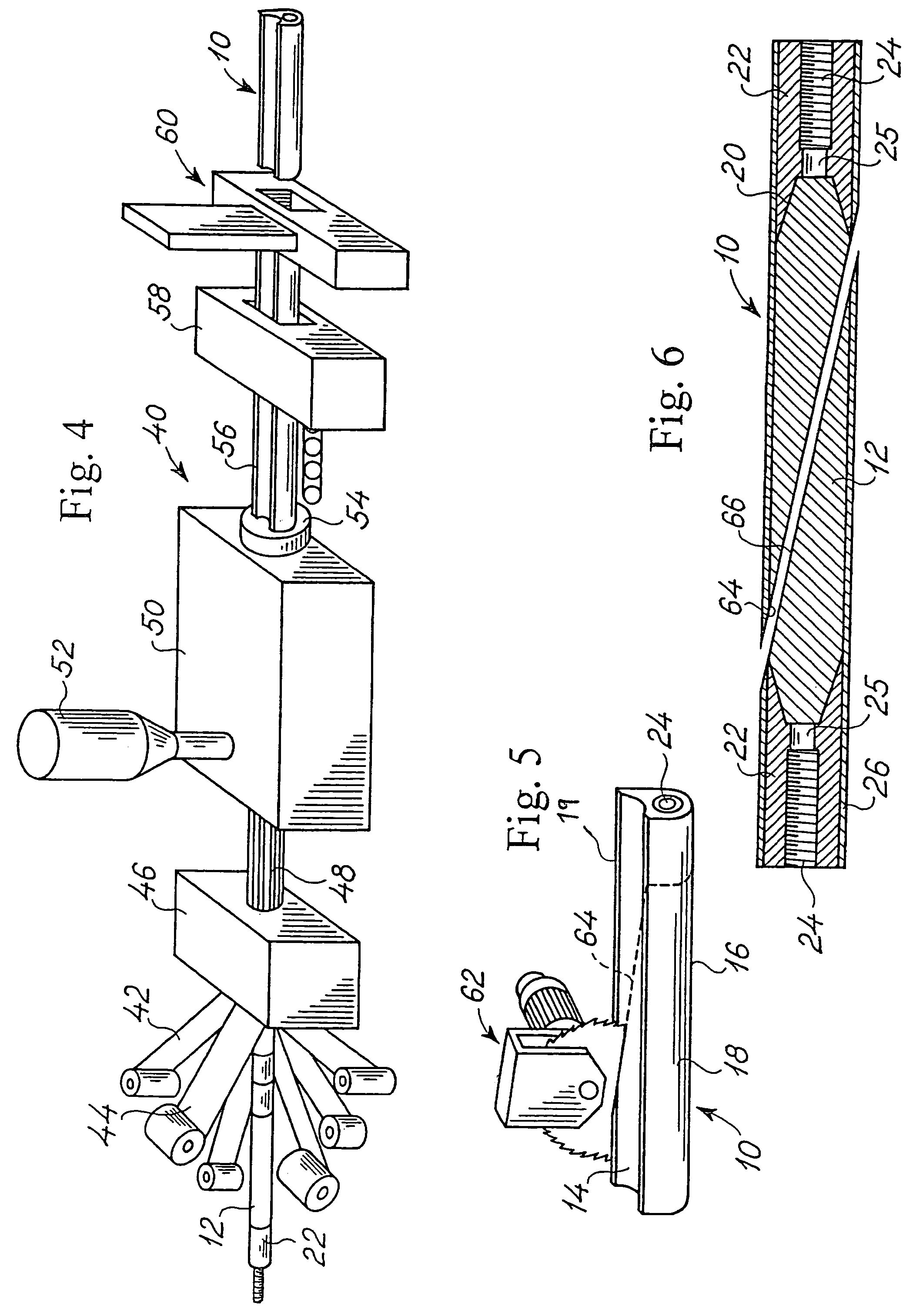Embedding element to be embedded in the end part of a windmill blade, a method producing such an embedding element as well as embedding of such embedding elements in a windmill blade
a technology of embedding elements and windmill blades, which is applied in the direction of propulsive elements, water-acting propulsive elements, propellers, etc., can solve the problems of weakening strength, time-consuming positioning, troublesome fastening of fibre composite components, etc., and achieves the effect of facilitating the positioning of elements
- Summary
- Abstract
- Description
- Claims
- Application Information
AI Technical Summary
Benefits of technology
Problems solved by technology
Method used
Image
Examples
Embodiment Construction
[0006]The object of the invention is to provide a new and improved embedding element for embedment in a wind turbine blade made of fibre composite material allowing for a simplified embedment process and ensuring increased strength at fixation of the wind turbine blade to the turbine hub.
[0007]According to the invention the object is obtained in that between its two end portions the embedding element is provided with a first longitudinal lateral face extending substantially concavely in a cross-sectional view perpendicular to the longitudinal axis of the embedding element, and with a second longitudinal lateral face facing opposite the first lateral face and extending substantially correspondingly convexly in a cross-sectional view perpendicular to the longitudinal axis. As a result it is possible to lay up the embedding elements in alignment such that a concave lateral face engages a convex lateral face, whereby the positioning of the elements is facilitated. Due to the concavity / c...
PUM
| Property | Measurement | Unit |
|---|---|---|
| conical shape | aaaaa | aaaaa |
| shape | aaaaa | aaaaa |
| circumference | aaaaa | aaaaa |
Abstract
Description
Claims
Application Information
 Login to View More
Login to View More - R&D
- Intellectual Property
- Life Sciences
- Materials
- Tech Scout
- Unparalleled Data Quality
- Higher Quality Content
- 60% Fewer Hallucinations
Browse by: Latest US Patents, China's latest patents, Technical Efficacy Thesaurus, Application Domain, Technology Topic, Popular Technical Reports.
© 2025 PatSnap. All rights reserved.Legal|Privacy policy|Modern Slavery Act Transparency Statement|Sitemap|About US| Contact US: help@patsnap.com



